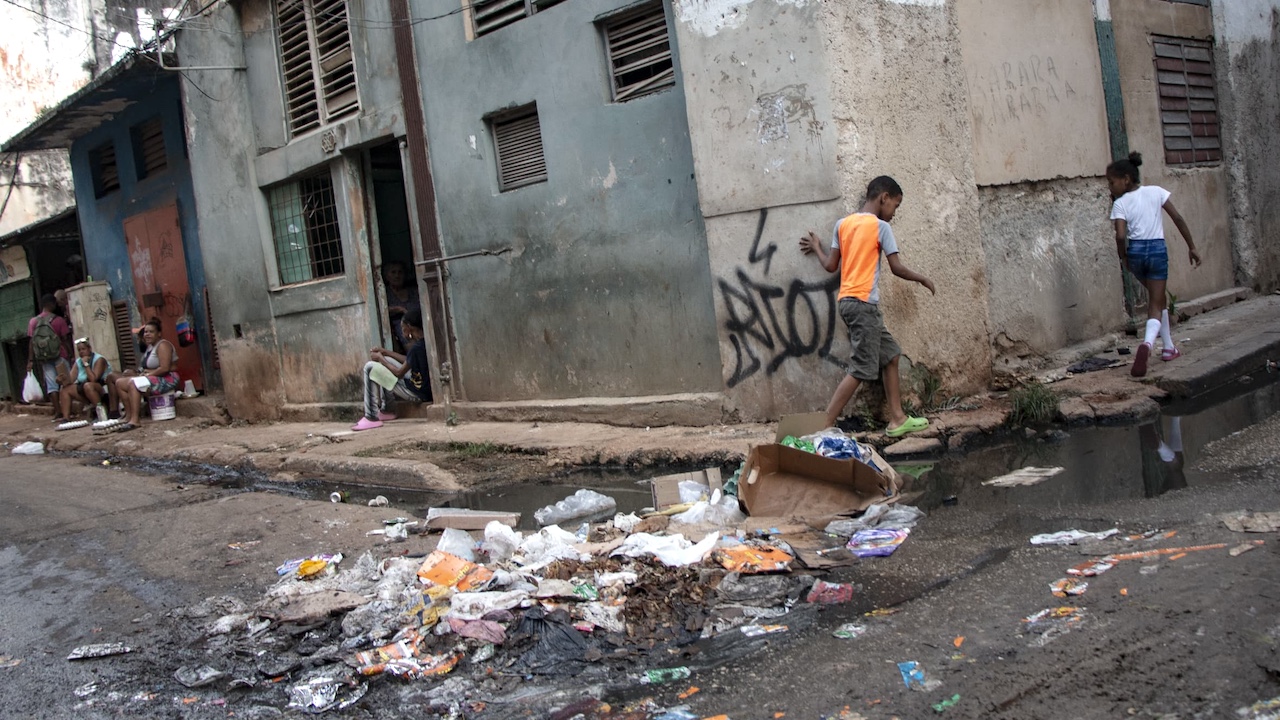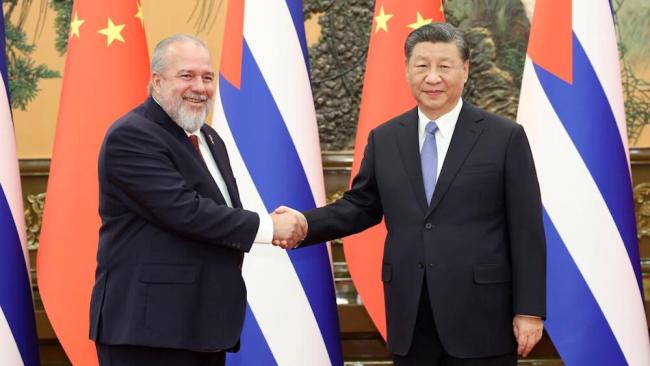In 1989, despite the glaring failure of the Soviet bloc as empirical evidence (the theoretical impossibility of socialism has been common knowledge since the 1930s) Fidel Castro decided to maintain a system banning all private property and all economic freedom other than his own.
And, if even further confirmation was needed of the folly of keeping the economy nationalized, and exacerbating Cuba's stand-off with the United States, the strong results that the Chinese and Vietnamese were obtaining just few years after abandoning socialism, and making diplomatic efforts to patch up their historically strained relationships with Washington, left no doubt that this was the path to prosperity, and not the "construction of socialism."
Castro I and his accomplices knew that what Cuba needed was the exact opposite of what, with premeditation and treachery, they decided to give it, in a flagrant act of aggravated "countrycide." Both that sociopath and his current heirs were convinced that they would last longer in power if they were to rule over a fractured people, one dependent on the State and emigration, and that a prosperous civil society based on private property, would inevitably generate pockets of power standing as alternatives to Castroism.
Although the extreme misery into which they have intentionally plunged the country is a potential source of political instability, it is much easier to manipulate people who are hungry for bread and electricity, or to bully them, than to grapple with a prosperous society that begins to think about freedoms, dangerously connected by economic and family ties to the greatest known democracy.
It must not be believed, then, that the current state of national decomposition is a by-product, something that "happened" when, attempting to implement socialism, they ended up creating this hell. This Cuba of rubble, garbage dumps and reggaeton is a direct result of the fact that Fidel Castro and his gang put in place a system they knew full well would never create wealth and well-being, one they knew would produce poverty, death and destruction. Despite all this, they decided to preserve it, even when it had just failed in Europe and in Asia it had been abandoned, to keep the population in survival mode, thinking with their stomachs.
This is a genocide that has been perpetrated while constantly laying the blame on the US embargo. But it is not because of Washington's stubbornness in maintaining this policy —part of a hope that this nightmare will end some day in Cuba— that Castroism has had a partner in crime, but rather because of the hundreds of governments that, out of ingenuity, ideology or interest, have legitimized, with their recognition and institutional normality, the power of the mafia that has hijacked this nation.
Taking cover behind the "blockade," Fidel Castro and his accomplices not only maintained a perverse and impoverishing system, but actively sabotaged any opportunity for development in Cuba, as evidenced by their relationship with China.
The size and needs of that Asian economy, at least since 2000, guaranteed a buyer for rum, tobacco, nickel and other minerals, sea products, agricultural goods and cane byproducts. For anything that Cuba might produce, there was no lack of demand from a good payer, one with its own ships and banks, and one immune to the embargo; a commercial partner that, in addition, could have provided all the supplies, parts, spare parts, machinery and technologies that Cuba might need to produce everything from nuts and bolts, to sugar, to electricity. What happened?
A commercial relationship that could have thrived, unaffected by the embargo, lubricated with oil and other resources from Venezuela to facilitate the Cuban production of goods, never took hold because Castroism is not interested in developing the country, even under state control.
Between 1992 and 2006, while the rest of Latin America quintupled its exports to China, Cuba's remained flat due to the country's inability to produce more to export more. From 2006 to 2008 demand from China shot up and the prices of raw materials skyrocketed. For two years the value of Cuban exports to that country also quintupled. However, while the other Latin American countries continued to export more and more, today having tripled what they sell to China, since 2008 Cuban exports have been dwindling, now barely a third of what they were in that year.
Where did the more than one billion exported in 2008 end up? With money coming in, and technology, and without the embargo being a factor, why did that trade fall so abruptly? This was almost 10 years before Trump became President and "tightened the blockade."
Castroism now has another politically friendly partner —like the Soviets in the 1960s— but it still acts to block the private sector from flourishing by taking advantage of the Chinese locomotive. Instead, inefficient socialist state enterprises, weighed down by onerous regulations, victims of their own government, are doomed to perish amid rust, paperwork, corruption and moral stimuli.
It would be enough for Castroism —Cuba is another question— to trade with China and Russia to avoid the country's shameful state of poverty today. Although these two allies have repeatedly pressured Havana to tone down its centralist model, in the Palace of the Revolution they turn a deaf ear to their allies, trusting that they will not let them die, just as they do to a people that would be helpless if it were not for those who emigrated.
To guarantee their grip on power, first Fidel Castro, and now Raúl's thugs, have chosen to let us die like castaways on an island, preventing the economy of this potentially rich country from thriving. For the last 36 years, Castroism has remained in power by inflicting material misery on those who live on the island, and spiritual pain on those whose bodies left Cuba, but whose spirits never did.

